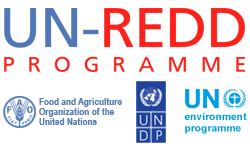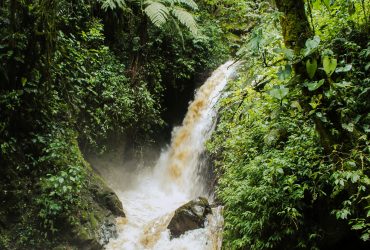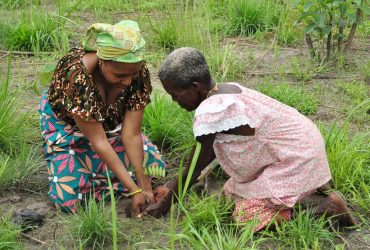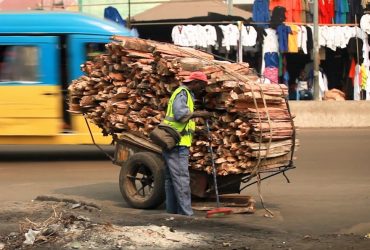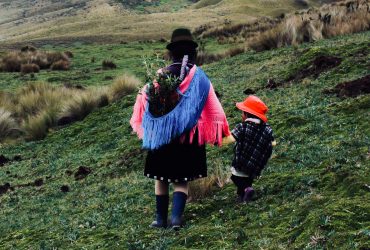The UN-REDD Sustainable Forest Trade in the Lower Mekong Region (SFT-LMR) is a new initiative that addresses forest crime through improved governance in the Lower Mekong region. 2021 saw substantive progress on most outputs of the project’s logical framework approach, after the inception phase that ended in November, 2020

Regional dialogue and analysis. One of the initiative’s expected outputs is to underline how the forestry sector in the region is changing and to identify opportunities for its further transformation through the use of data and knowledge from multiple sources. The key trends emerging from analysis identified through the Regional Dialogue, held in December, 2021, depict a region experiencing exceptional wood industry growth, led by Viet Nam and Thailand’s furniture and sawnwood industries and exports. The remaining three countries – Lao PDR, Cambodia and Myanmar – are emerging from a period of forest exploitation, with indications for a potential transition towards a sustainable forest sector if forest and trade governance challenges can be successfully addressed. Since 2017, exports of the prized rosewood from these three countries to China has taken a major plunge,and Lao PDR, in particular, is working with the SFT-LMR Initiative to prepare a scientific basis for assessing a sustainable threshold for any future rosewood harvests and exports – a Non-Detriment Findings (NDF) under the Convention onnInternational Trade of Endangered Species of Wild Flora and Fauna (CITES).
Verification of timber legality and sustainability and smallholder engagement. Natural forests in the region are off limits for commercial harvests and are only permitted for limited local consumption. In this respect, wood industry growth in Viet Nam and Thailand is based on plantation timber of both domestic and foreign origin, as well as extra-regional imports. Correspondingly, promotion of a plantation-based industry is a priority for the sourcing countries of the region. With the support of the SFT-LMR Initiative in Cambodia and Lao PDR, dialogue between supply chain actors and the government has been initiated and trainings delivered for developing mechanisms and capacity to support the verification of the legality and sustainability of such timber.
In all Lower Mekong countries, smallholders are at the heart of timber production; it is essential to ensure that any mechanism of forest trade governance engages and accommodates smallholders. In 2021, under the Initiative, community-based groups in Viet Nam piloted a stepwise approach to forest certification. This stepwise approach accommodates timber sourced through verified sources into certified supply chains as controlled wood sources. Smallholders that have one step in the door of the sustainable supply chain, therefore have stronger incentive and resources to take the next step of investing in full certification. Another area of work in 2021 was the development of training approaches and materials to facilitate the transfer of knowledge to stakeholders working with such community groups, and to community groups themselves, on how to provide timber that meets the standards of legality and forest certification.
Strengthening data and monitoring. Lower Mekong countries are making progress in strengthening information and monitoring systems related to social and environmental trends in forests. The Initiative has supported assessments in 2021, covering diverse aspects of information systems, including the status of land and forest tenure information in Lao PDR, opportunities to link the development of the National Forest Monitoring System and safeguards information system (SIS) in Thailand and potential upgrades of the SIS in Viet Nam. Discussions with Cambodian and Myanmar counterparts and stakeholders have prioritised the piloting of monitoring and data collection approaches in 2022, looking at biodiversity, ecosystem services and safeguards in four provinces in Cambodia and community forestry in Myanmar. In addition, the initiative has compiled a repository of useful global and regional datasets, platforms and tools to support governments and other actors to access and use data on trends in the forest sector.
Behavioural change campaigns. From encouraging people to report illegal logging and trade in the Lower Mekong Region and China, to inspiring a shift to sustainable wood purchasing habits, behavioural change campaigns play an important role. Changing behaviour can be a difficult, complex process requiring strategic and targeted interventions. In 2021, the Initiative began in-depth consultations with project stakeholders in Lao PDR, Vietnam, Cambodia, Thailand and Myanmar and China, resulting in the identification of tailored communications needs and interventions for each country. Five of the communications campaigns will address issues around the production and supply of illegal timber such as increasing the reporting of illegal wood trade in forest communities in Lao PDR, raising awareness on legal wood in Myanmar, promoting sustainable practices in rosewood harvesting in Thailand and Cambodia and enforcing stricter regulations to ensure sustainability of trade across the borders of Viet Nam. To tackle the issue of illegal trade at its source, a communications campaign in China will focus on reducing demand for protected woods, such as rosewood, and bringing to the forefront of public concern the illegal wood trade and how it affects our lives and societies. A polling company has been procured to conduct a baseline survey which will be used to segment key audiences and to measure the outcome of the campaigns.
CHALLENGES AND SOLUTIONS
Given the implications of COVID-related constraints to the project, and the shortened project duration due to the delayed start up, a one year, no-cost
extension was requested and approved by the Executive Board in August, 2021, extending the Initiative’s lifetime to a total of two years and 5 months, until the end of 2022.
Political turmoil in Myanmar all but removed the country from activities in the first half of 2021. In the second half of 2021, the Initiative sought out approaches to work on community forestry as a priority issue that does not engage directly with the government. In 2022, under the Initiative, communities will benefit from delivery of training and improved forest management and harvesting planning.
The COVID-19 pandemic had a significant impact on the Initiative throughout most of 2021. While globally there was respite, countries in the region experienced the full swing of pandemic-related restrictions and went into varying forms of lockdown. Cross-border, and some in-country, travel was cancelled and replaced with online meetings. While this resulted positively in some ways, for a number of topics, such as bilateral and multilateral dialogues, and some trainings where in-person interaction is essential, delays and compromises resulted.
The slow engagement with China is another area that was impacted by COVID-19. By the end of 2021, a number of specific activities engaging with China were identified and started, including those with the Forest Stewardship Council (FSC) and the Global Green Supply Chain (GGSC) via the International Tropical Timber Organization (ITTO). Had physical travel been permissible, more dynamic and expedited dialogue and the identification of partners and areas of work would likely have resulted.
GENDER AND SOCIAL INCLUSION
Gender balance and women’s participation were measured and promoted in all meetings. Women’s participation was recorded at 44 percent at the regional dialogue held in late 2021 and at between 20 percent and 50 percent at subsequent national workshops. Women’s participation in events and trainings and their active engagement continues to be promoted, including in activities conducted by partners. Strategies to better engage women at the national and local level will be developed, in particular for capacity development activities. Work to strengthen information or monitoring systems in LMR countries related to forests is taking into account the availability of information on gender and social inclusion and examining, for example, how gender and participation information has been integrated to date and suggesting improvements.
Partnerships have been cultivated with a number of non-governmental organizations (NGOs) operating in the region (see partnerships section). Barriers to smallholder and community access to legal and sustainable forest product value chains have been identified and a capacity development program designed, to be piloted for both smallholders and communities, as well as national stakeholders in 2022. The initiative also aims to improve financing for smallholders undertaking sustainable timber production models and small and medium enterprises (SMEs)
PARTNERSHIPS
The initiative works closely with the governments of the Lower Mekong countries (with the exception of Myanmar), forestry agencies and stakeholder
partners operating in each country. Key partners now engaged formally with the Initiative include the World Wildlife Fund (WWF). This partnership will be used to identify innovative sustainable models for timber production and trade for small and medium enterprises (SMEs). With FSC, networks will be fostered between demand and supply sides of certified wood products markets, particularly between China and the Lower Mekong countries. With the ITTO, the focus will be placed on regional forest trade statistics and trends, as well as the GGSC (see challenges and solutions section). These add to the partners already engaged by the Initiative including RECOFTC. With RECOFTC, the initiative is building national capacities and enabling community-based groups and smallholders to access legal and sustainable forest product value chains. The initiative is also working with the Programme for the Endorsement of Forest Certification (PEFC) to support sustainable forest management through the development an strengthening of forest management standards and promotion of compliance with legal requirements. The partnership with CITES Secretariat supports CITES implementation and addresses ongoing compliance processes under CITES.
LINKAGES TO SDGS
The activities above will allow LMR countries to report progress against SDGs 12, 13 and 15 in a consistent and coordinated manner.
